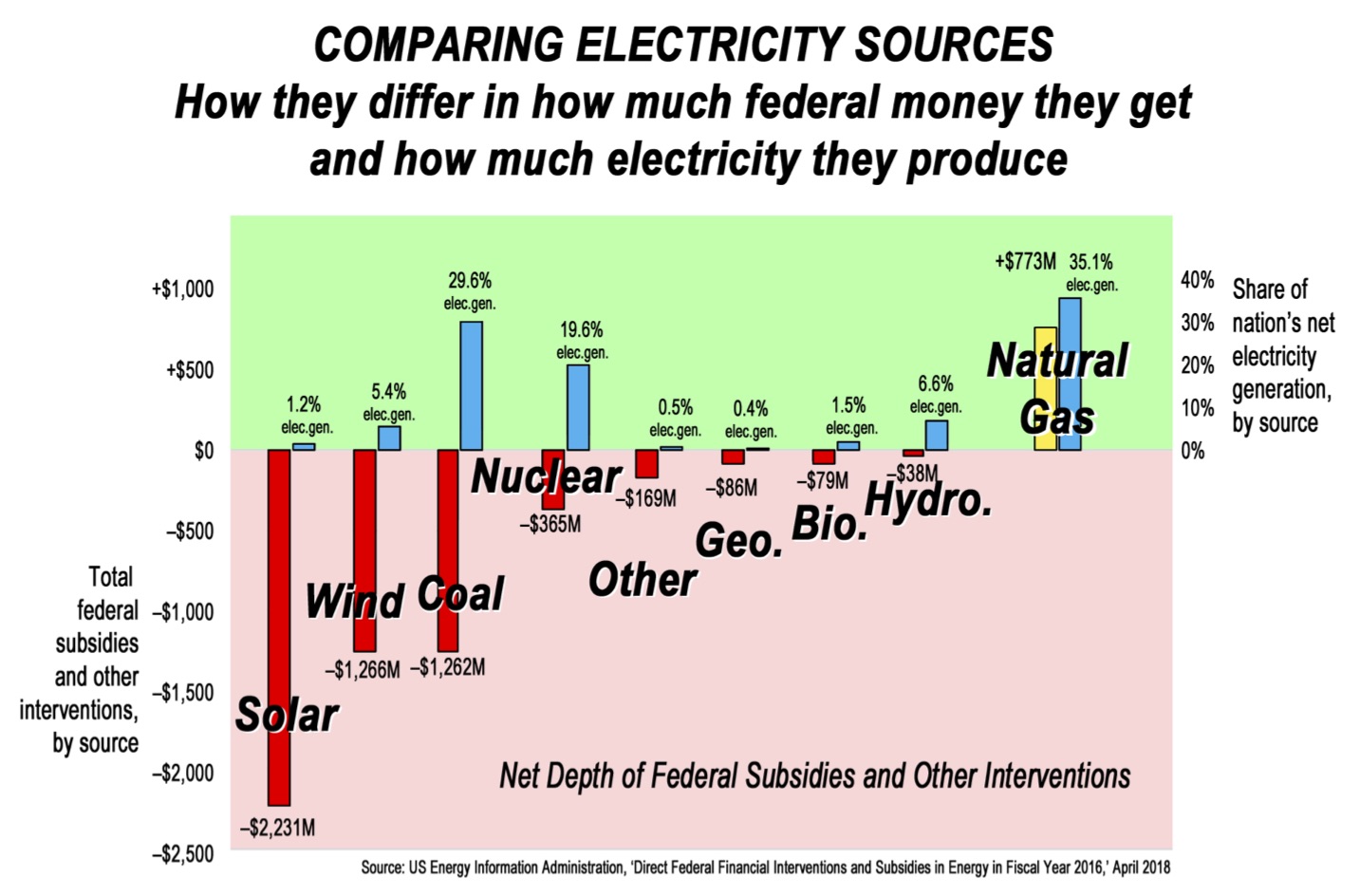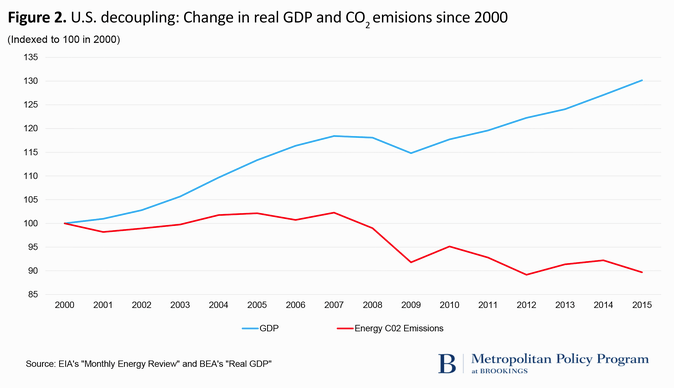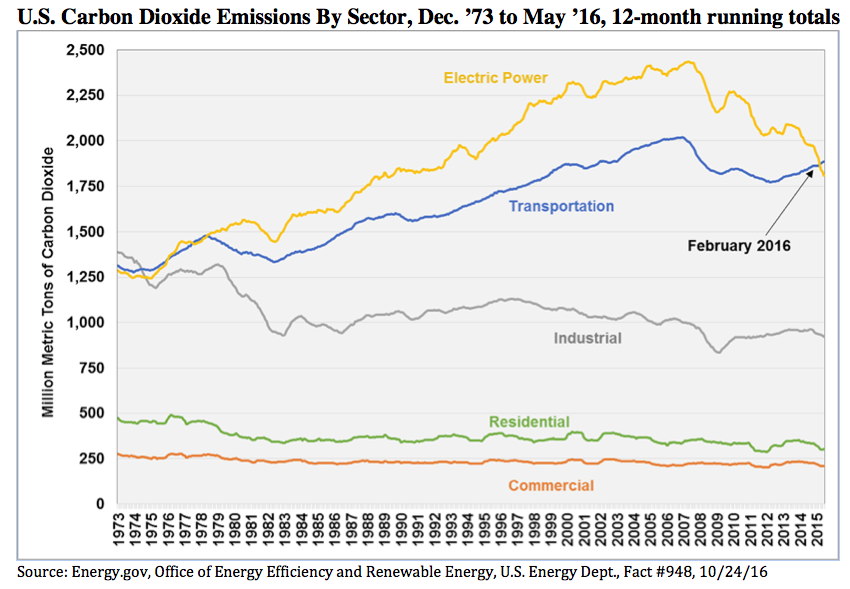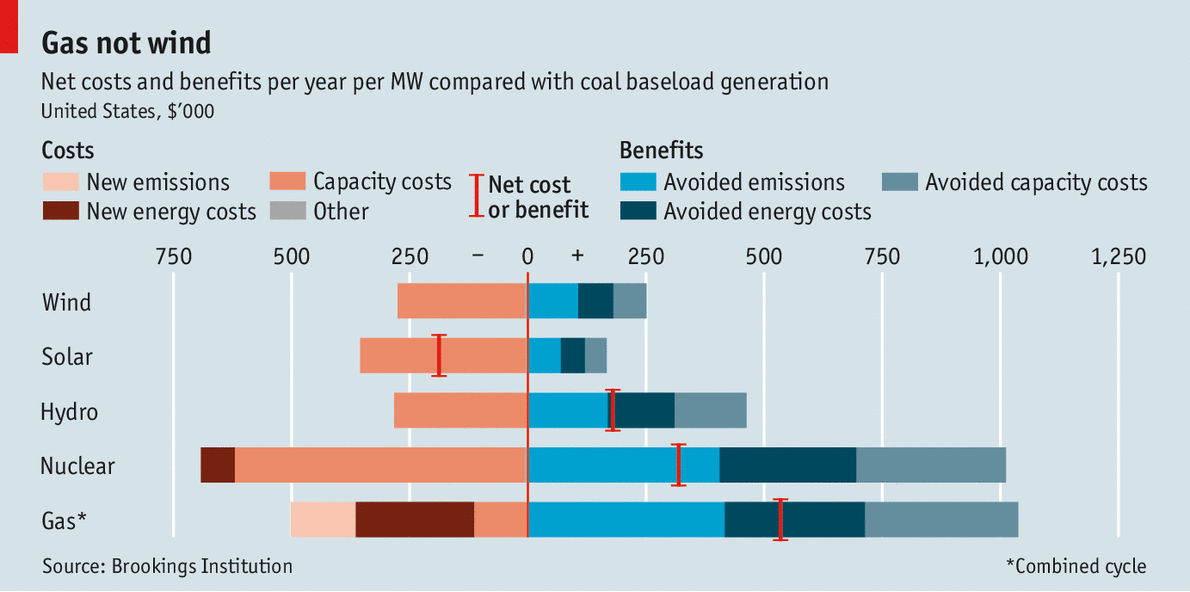The News & Observer writes unquestioningly about another renewable energy industry report that promotes ongoing government favoritism for renewable energy. “Clean energy is becoming an increasingly important part of North Carolina’s economy,” begins the N&O.
But the report itself, “Renewables on the Rise 2018” from the Environment N.C. Research & Policy Center and Frontier Group, reads like other industry reports, making it clear that the renewable industry’s business model is still based firmly in securing favorable government policies.
A clear sign of “an increasingly important part” of the economy would be an ability to stand on its own, yes? But the report’s conclusions all center on government policies to promote renewable energy in a variety of ways. They include requirements for buildings, appliances, and vehicles; a fleet of policies, targets, and mandates “to hasten renewable energy deployment” by utilities; policies, funding, and aid “to support technology development”; and policies to limit and raise costs on traditional energy sources in order to force and “shift us away from fossil fuels.”
These policies need politicians to act, and they need a reason. The very first paragraph of the report’s introduction to the report is a study in hyperbole and baseless scare tactics. Allow me to demonstrate:
The cost of America’s dependence on fossil fuels is steep.—
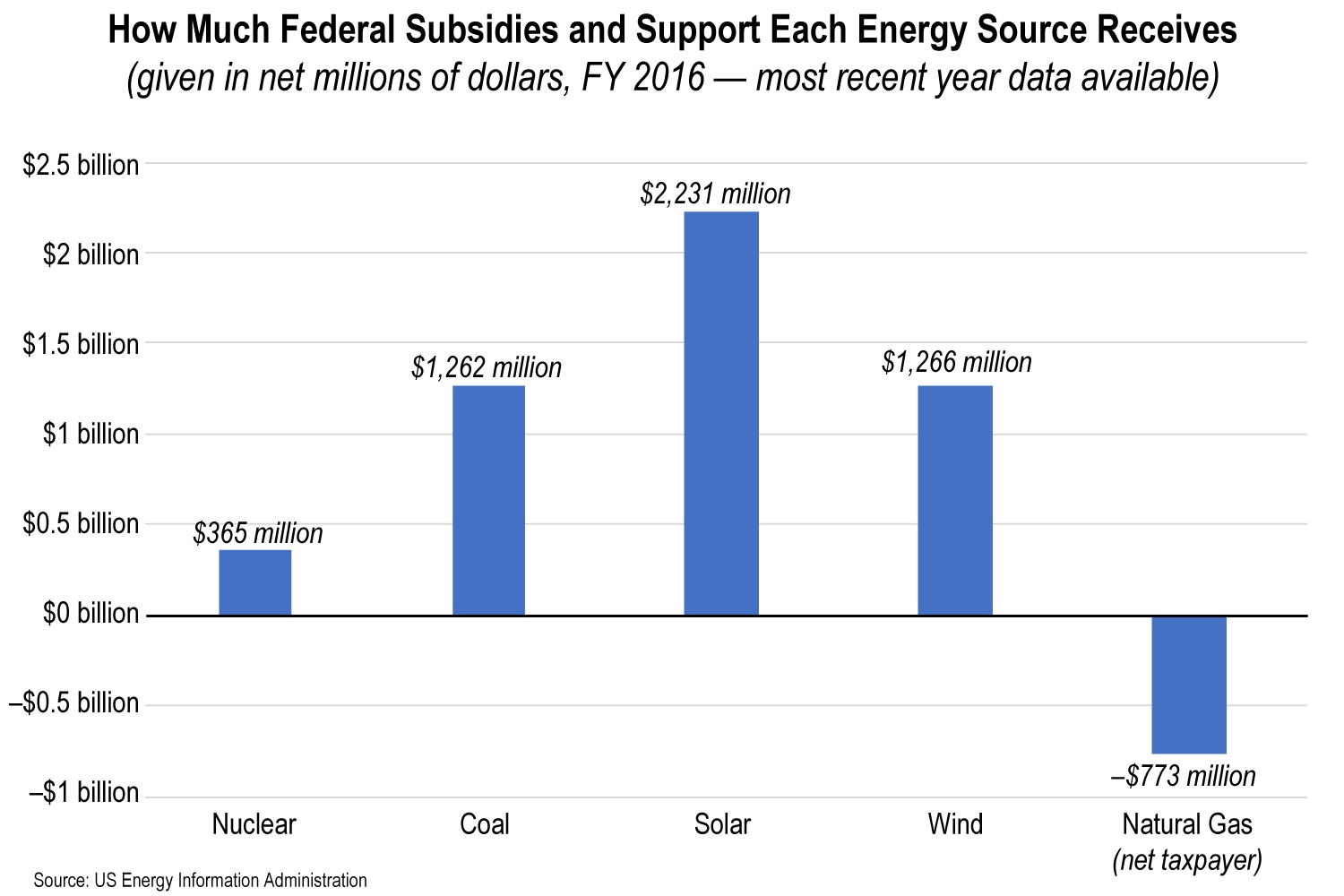
Cost? The only energy source that isn’t a net subsidy taker is natural gas. It makes up over one-third (the largest share) of the nation’s electricity generation. Renewables are exceedingly costly and generate very little of the nation’s electricity.
Continuing:
Our dependence on oil, gas, and coal pollutes our environment, jeopardizes our health, —
According to the June 2018 data release from the U.S. Energy Information Administration, U.S. CO2 emissions are at the lowest per-capita level since 1950. They are at their lowest absolute level since 1992.
Here are other, recent charts showing U.S. emissions’ decline this century:
The U.S. is leading the world in cutting emissions (and they’ve recently started increasing in Europe, by the way).
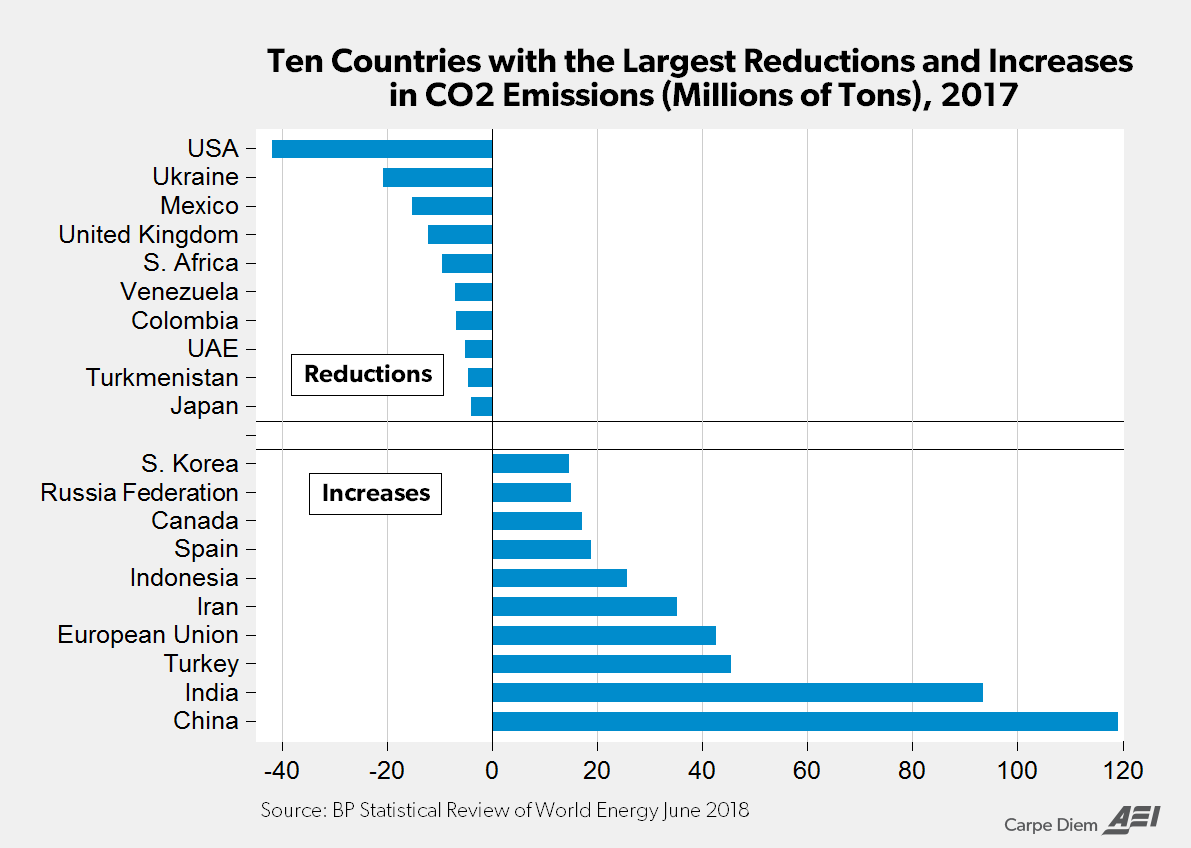
The U.S. decline in emissions all century is not because of switching to renewables, however. Renewables are too small of a factor to be making any noticeable impact. Market forces are the biggest reason, primarily the switch over to low-cost natural gas owing to the technological innovation combining hydraulic fracturing (“fracking”) with horizontal drilling.
Emissions have been falling all century long in North Carolina, too.
Continuing:
— costs us money, and —
The first two charts ought to rebut any remnant of an illusion that renewables are cheaper than traditional energy sources, as should the data behind them (amount of subsidies vs. amount of electricity output subsidized).
But what if you consider it in the context of solar and wind being intermittent, unreliable, nondispatchable energy sources (you know, since it’s often not sunny nor windy)? Solar and wind require traditional sources for backup generation, which already adds to their cost, but they don’t use those backup sources efficiently. This results in even greater costs of renewable energy compared with traditional energy resources.
After accounting for emissions and dispatchability alongside levelized plant costs, solar and wind turn out to be “by far the most expensive way[s] of reducing carbon emissions.”
Continuing:
— threatens our national security. Burning fossil fuels in our homes, businesses, factories and cars is the leading source of the pollutants that cause global warming, which is already contributing to more intense storms, punishing droughts, and rising seas, and which threatens far greater consequences in the years and decades to come.
The U.S. leading the world in reducing emissions solidly slams the door on the basis for that whole litany of fears.
But let’s pursue the national security aspect a bit further. In the early 2000s, Americans worried about gas prices, OPEC, foreign problems because of oil, the lack of a strong domestic energy industry, and emissions, and they wanted to see the U.S. become more energy-independent.
Here in 2018 those problems are all in decline. The fracking revolution has led to a thriving domestic energy industry. It has defanged OPEC. It is causing Russia to turn to social-media machinations to oppose fracking.
This was the news late last week:
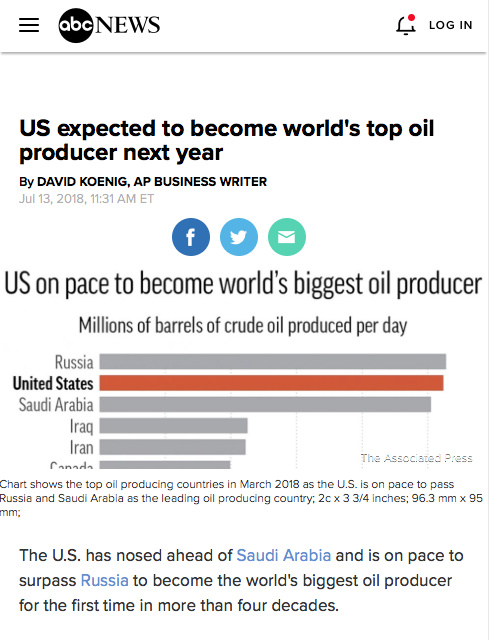
And it has also led to the U.S. being the world leader in reducing emissions.
But one thing it doesn’t do, cannot do, is scare policymakers into giving in to another round of rent-seeking efforts by one of the few big, greedy businesses that get a pass from media for engaging in such nonsense.
Which is why the N&O‘s report doesn’t question a whit of it.
